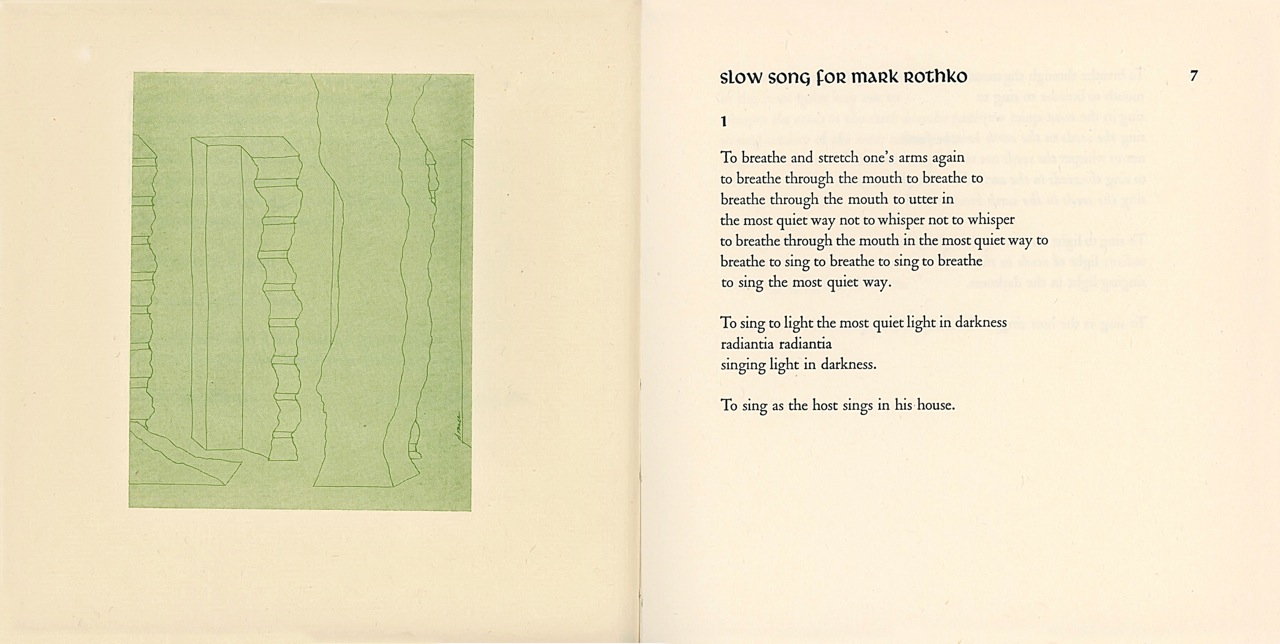[From a little over a decade ago — first published at Flashpoint — a meditation on what now — it seems clear — is to be considered “mid-period” Taggart, before the remarkable shift and efflorescence of Pastorelles and There Are Birds: the poetics of Standing Wave, Crosses, and above all that various and monumental collection Loop, a book which in my mind looms over American poetry of the 1980s and 1990s like the black monolith of Kubrick’s 2001 — or, more often, beckons like an enclave of vast, multilayered, shimmering Rothk



